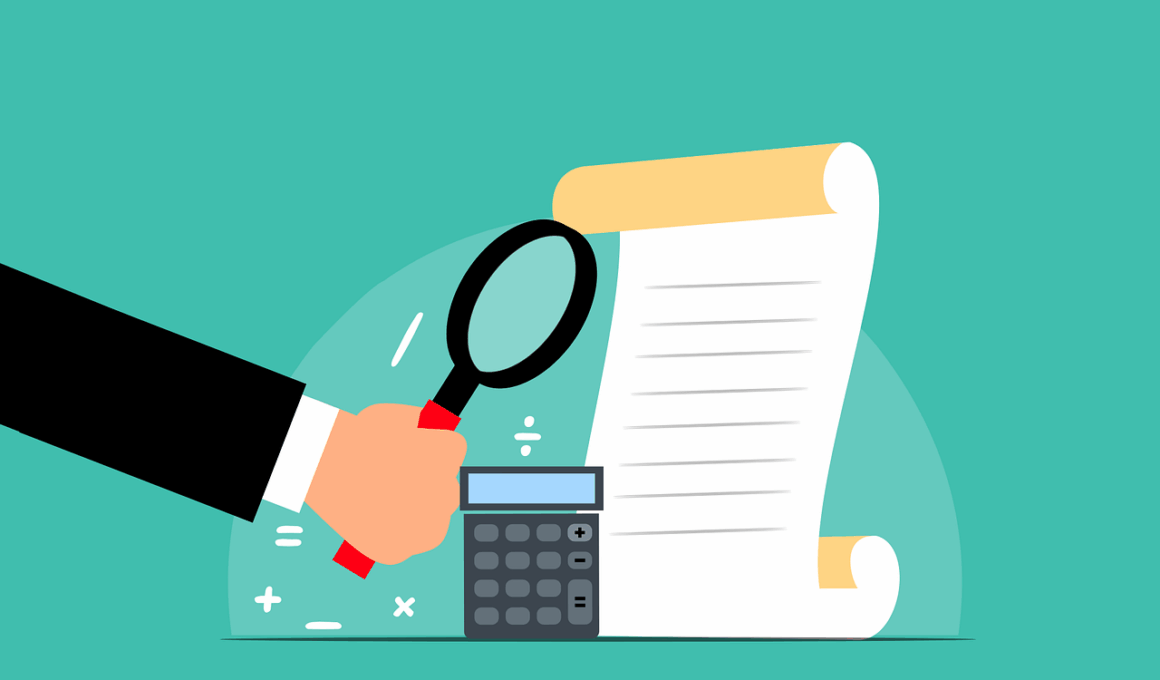Preparing for a Single Audit: What Nonprofits Need to Know
Single audits are an essential part of maintaining compliance for nonprofits that receive federal funds. Many organizations find the audit preparation process daunting, but with some strategic planning, it can be manageable. Understanding the requirements helps organizations to gather the necessary documentation ahead of time. This proactive approach ensures that the audit process runs smoothly and accurately reflects the financial position of the organization. Nonprofits must keep thorough records of their expenditures that can be traced back to the source documents such as invoices and receipts. Additionally, it’s crucial to have a strong internal control system in place to mitigate risks of financial mismanagement. The internal controls should ensure that all transactions are appropriately authorized and recorded. By allowing for systematic checks and clear processes, organizations can create a trustworthy environment for financial reporting. Engaging with an experienced auditor can also provide insights into potential pitfalls and best practices for compliance during the audit. As the nonprofit sector grows, so does the need for transparency and accountability in their financial dealings, making audits a vital function.
Understanding the Audit Requirements
The requirements for a single audit are dictated by the federal government, particularly the Uniform Guidance which outlines how nonprofits should manage and report their federal funds. Understanding these specific guidelines is vital for nonprofits to ensure compliance and avoid penalties. As an organization that expends $750,000 or more in federal funds, nonprofits must adhere to these regulations, and the audit examines financial compliance with those fund expenditures. This audit assesses various elements, including compliance with laws, regulations, and grant agreements. Familiarity with the criteria helps nonprofits prepare their financial statements accordingly. Financial management staff should be well aware of all applicable regulations governing funded projects. The audit process will often require documentation such as the organization’s financial statements and federal funding sources. Additionally, the organization must also account for direct and indirect costs associated with federal funds received. Maintaining an updated accounting system is essential to record all eligible expenses accurately. Furthermore, nonprofits must be ready to provide on-demand access to records during the audit.
A significant aspect of preparing for a single audit is the requirement to have a clear organizational structure in place. This includes maintaining an up-to-date organizational chart, which outlines the roles and responsibilities of staff members who manage, oversee, and execute projects funded by federal grants. During the audit, auditors will want to understand who is accountable for financial decisions and how these individuals interact with the entire financial system. An organized structure allows for effective communication and ensures that all financial processes are followed without confusion. Moreover, ensuring staff is trained in compliance and financial management practices is crucial. Documentation of training and continued education is another important aspect that auditors may request. This involves seminars, webinars, and workshops related to nonprofit finance management. Regular training equips certain staff with the knowledge necessary to navigate compliance issues. Additionally, keeping records of attendance and material covered during training serves as evidence of the organization’s commitment to compliance. This commitment can leave a positive impression during the audit process.
Record-Keeping and Documentation
Record-keeping is at the heart of effective audit preparation. Nonprofits must establish a comprehensive system for documenting all transactions and preserving essential records, such as invoices, receipts, cancelled checks, and bank statements. Accurate record-keeping becomes invaluable when auditing deferrals and expenditures for federal programs. Having these documents organized allows for a smooth audit process and increases the credibility of the financial accounts. Ideally, all records should be digitally stored and easily accessible to ensure prompt retrieval during the audit. Categorizing documents based on program areas, funding sources, and timeframes helps in providing quick access during the audit. Auditors will seek clarity in how funds were utilized, prompting nonprofits to be meticulous in tracking and coding expenses. Documentation should accompany all expenses to validate their legitimacy, emphasizing the connection between expenditures and programmatic outcomes. Establishing a thorough filing system can simplify the task when documentation is required and minimize the risk of overlooking significant records. Being organized not only streamlines the audit process but also reflects professionalism in financial management.
Engaging with an external audit firm prior to the audit can significantly enhance preparedness. External auditors can provide valuable guidance while also conducting preliminary assessments of the organization’s financial health. They may recommend changes or improvements to internal control practices that could enhance transparency. Engaging an external advisor helps nonprofits identify any gaps or areas of risk that may need addressing before the actual audit takes place. Preparing for the single audit is not merely about ensuring compliance; it’s also an opportunity to learn and make improvements. Outside consultants can offer fresh perspectives that internal staff might overlook. Having this additional layer of expertise can guide nonprofits toward better financial practices. Creating a “mock audit” with the external firm can help organizations become familiar with the auditing process. This provides a safe environment for staff to ask questions and practice responses. Anticipating audit questions promotes confidence during the actual audit, alleviating anxiety that may come from uncertainty. Overall, pre-engagement with an audit firm facilitates a more streamlined and insightful experience.
The Role of the Board in Audit Preparation
The board of directors plays a vital role in the audit preparation for nonprofits. They must understand their fiduciary responsibility in overseeing financial stewardship, which includes monitoring the audit process. Board members should be familiar with the financial statements and the organization’s accounting processes. Actively engaging in financial literacy training enables board members to ask pertinent questions during audits. Furthermore, they should plan regular meetings with the finance committee, where they can discuss upcoming audits and review previous findings. During these meetings, risk assessments and compliance should remain priority topics, ensuring that any recommendations made by auditors are addressed promptly. By being informed, board members can better support staff and maintain clear lines of accountability. Clear communication between the board and the finance team fosters an environment of cooperation, leading to transparent financial reporting. Ultimately, the board serves as the first line of defense against financial mistakes. Encouraging a culture of rigorous financial practices within the organization contributes to its long-term sustainability and compliance. Nonprofit boards that prioritize financial management set a precedent for due diligence that resonates through the entire organization.
Following best practices and being proactive about single audit preparation not only aids compliance but can improve the overall financial health of the organization. Ensuring accuracy in the financial statements and facilitating clear communication across departments can significantly enhance the efficiency of financial operations. By committing to transparent practices, organizations can cultivate trust with stakeholders and funders. Improving internal controls minimizes the risk of errors, fraud, and mismanagement, which are critical concerns prompting the audit. Integrating technology solutions that enhance tracking of funding and associated expenditures can relieve administrative burdens, allowing staff to focus on mission-centric activities. With effective project management software, nonprofits can efficiently document project performance and monitor fiscal health. These solutions ease financial reporting and enhance the rigor of budget adherence. Moreover, investing in a robust financial management system can yield long-term benefits, providing detailed insights into organizational performance. Continuous improvement practices allow nonprofits to evolve their strategies based on audit findings, enhancing overall operational effectiveness. Engaging all staff in this mission underscores the commitment to accountability in the nonprofit sector.
Conclusion: Emphasizing Compliance and Continuous Improvement
As nonprofits navigate the complexities of grant funding and compliance, prioritizing preparation for single audits becomes paramount. The process should not be viewed as an inconvenience but rather as an opportunity for reflection and enhancing financial stewardship. By attending to the necessary steps, including ensuring organized documentation and involving board members, organizations can promote best practices that safeguard financial integrity. Continual training and engagement with audit professionals further solidify an environment committed to compliance, fostering trust among stakeholders. A well-prepared audit bolsters credibility with funding agencies and increases the chances of future funding opportunities. Furthermore, it inspires donor confidence in the nonprofit’s ability to manage resources responsibly. Continuous improvement practices offer nonprofits a pathway to enhance their operational efficiency and strengthen their funding applications. Embracing the audit process encourages a constructive mindset, allowing organizations to learn from past experiences while working towards sustainable goals. Ultimately, a thorough understanding of the audit requirements, combined with proactive preparation and organization, empowers nonprofits to achieve their missions while maintaining integrity and compliance in their financial dealings.


